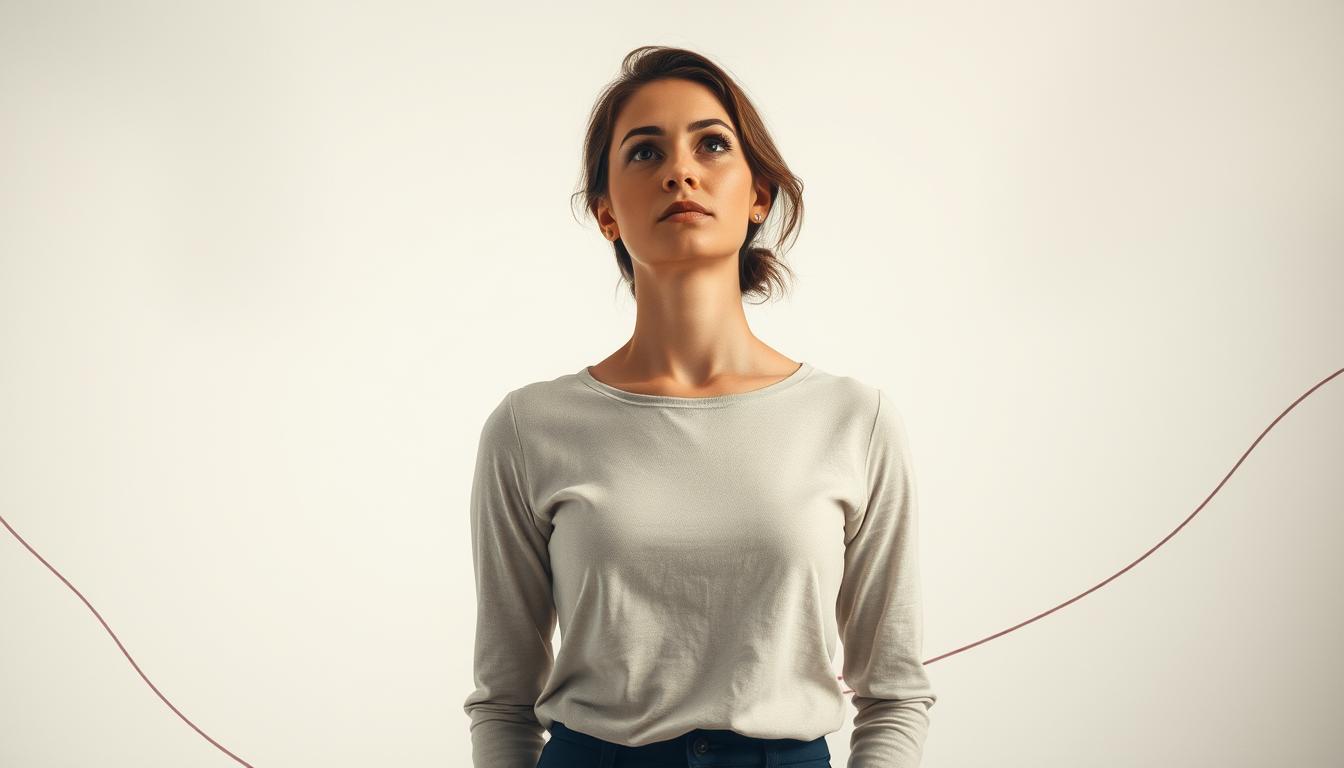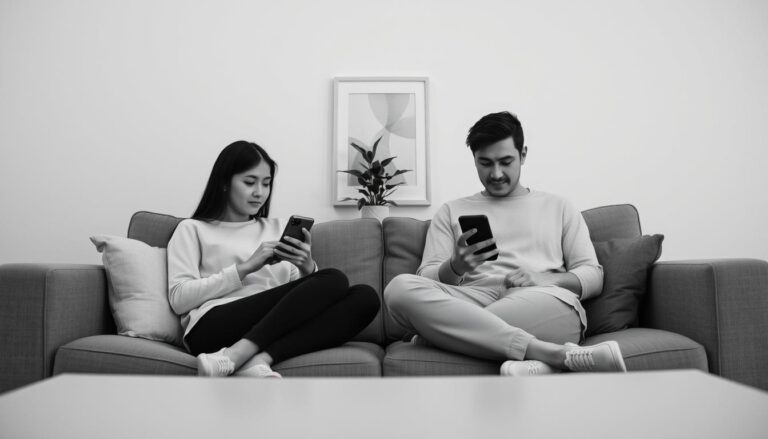Tips for Maintaining Independence in a Relationship
Being independent in a partnership is key for a healthy relationship. When both partners keep their own identity, they add new things to their relationship. This makes their bond stronger.
Having your own identity in a relationship helps you grow. It stops you from becoming too dependent on each other. It’s about finding a balance where you both feel connected but also free to do your own things.
Embracing relationship independence means you don’t lose yourself in the relationship. It shows a strong, confident partnership. Here, both people support each other’s dreams and goals.
Key Takeaways
- Maintaining personal identity is crucial in a partnership.
- Autonomy supports personal growth and a healthier relationship.
- Balancing togetherness and independence is key.
- Independence fosters a stronger, more confident partnership.
- Supporting each other’s interests and goals is vital.
Why Independence Matters in Healthy Relationships
Independence is key in any healthy relationship. It lets people keep their own identity. This way, they can build a deeper and more meaningful bond.
The Foundation of Personal Identity
Keeping independence helps keep personal identity in a relationship. It means being free to follow your own interests, values, and goals. You don’t have to rely too much on your partner.
Avoiding Codependency Patterns
Independence helps avoid codependent patterns. Being too dependent can make one partner feel trapped or lose their sense of self. It’s not healthy.
How Independence Strengthens Your Connection
Independence can make your bond stronger. When both partners have their own interests and friends, they bring new things to the relationship. This makes it more exciting and fulfilling.
By valuing independence, partners can build a healthier relationship. This balance supports personal growth and a more satisfying connection with each other.
Signs You Might Be Losing Your Independence
Relationships can be complex. It’s important to know when you might be losing your independence. A good balance between being together and being alone is key to a happy partnership.
Neglecting Personal Interests and Hobbies
One early sign is neglecting your hobbies. This can make you lose who you are outside of the relationship. If you stop doing things you love, you might feel empty and too dependent on your partner.
For example, if you used to paint but haven’t in months because you’re always with your partner, you might be losing your independence.
Declining Social Connections Outside the Relationship
Having friends outside your relationship is crucial for keeping your independence. If you’re turning down friends and family or avoiding social events, it could mean you’re too close to your partner.
- You’re skipping events with friends to stay home with your partner.
- You feel anxious about spending time with people other than your partner.
- You’re losing touch with friends and family because of your relationship.
Making Decisions Based Solely on Your Partner’s Preferences
It’s normal to make decisions together in a relationship. But if you’re making choices only based on your partner’s wishes, it’s a warning sign. This can be from what to eat to big life choices.
For instance, always choosing movies or restaurants based on your partner’s preferences without your own input means you’re giving up your independence.
Feeling Anxious When Apart
It’s okay to miss your partner when you’re not together. But feeling extreme anxiety or distress when apart is a sign of unhealthy dependence. This anxiety can show in many ways, like needing to be in touch all the time or feeling lost without your partner.
Spotting these signs is the first step to getting your independence back and having a healthier relationship. By knowing these signs, you can take steps to keep your independence while still being close to your partner.
Practical Tips for Maintaining Independence in a Relationship
Keeping your independence in a relationship is key for a healthy bond. It’s about keeping your own identity while being together. Here are some tips to help you find this balance.
Nurturing Personal Hobbies and Interests
Doing things you love is essential for keeping your identity. It makes you happy and brings new things to share with your partner.
Finding Time for Your Passions
Make time for what you love, even if it’s just a few hours a week. This could be painting, reading, or any hobby that makes you happy.
Exploring New Interests Solo
Don’t be scared to try new things by yourself. Whether it’s a cooking class or learning a new language, doing things alone can be very rewarding.
Maintaining Your Own Social Circle
Having your own friends and social circle is crucial. It gives you a support system and helps you stay yourself.
- Schedule regular meetups with friends.
- Join clubs or groups that align with your interests.
- Attend events and gatherings solo or with friends.
Setting Aside “Me Time” in Your Schedule
“Me time” is vital for recharging and keeping your sense of self. It’s not selfish; it’s necessary for a healthy relationship.
“You can’t pour from an empty cup. Take care of yourself first.”
Whether it’s a relaxing bath, a solo walk, or meditation, make sure to prioritize your alone time.
Making Independent Decisions
Deciding things on your own shows you’re independent and confident. It means you can handle things without always needing your partner’s opinion.
| Decision Type | Independent Decision | Joint Decision |
|---|---|---|
| Daily Choices | What to wear | Where to vacation |
| Financial Decisions | Personal spending | Major investments |
By making some decisions alone, you keep your freedom and help your relationship stay healthy.
Creating Healthy Boundaries While Staying Connected
Boundaries are not barriers; they are the foundation of a strong, connected, and independent relationship. It’s key to set healthy boundaries. This keeps your autonomy in a relationship while keeping you emotionally close to your partner.
Communicating Your Need for Space
Telling your partner you need personal space is vital. It’s about being clear and respectful. You can say, “I love spending time with you, but I need some alone time to recharge.” This helps set clear expectations and avoids misunderstandings.
Respecting Your Partner’s Independence
Just as you value your independence, it’s crucial to respect your partner’s too. Supporting their individual interests and alone time can make your bond stronger. It’s about trusting each other to keep your own identities within the relationship.
Handling Resistance to Boundaries
Sometimes, your partner might feel pushed away by your boundaries. It’s key to talk about these feelings with empathy. Explain that boundaries are for a healthier, more balanced relationship. Open dialogue can clear up these concerns.
To show how important boundaries are, let’s look at a comparison:
| Aspect | With Healthy Boundaries | Without Healthy Boundaries |
|---|---|---|
| Personal Identity | Maintained through individual interests and alone time | Can become lost in the relationship |
| Relationship Quality | Stronger, more respectful, and balanced | Can become codependent or strained |
| Emotional Well-being | Better managed stress and emotional needs | Can lead to emotional burnout or resentment |
Balancing Autonomy and Togetherness
It’s key to balance your independence and partnership for a strong bond. Fostering independence in a relationship lets both grow, making your bond stronger. It’s about finding a balance where both feel supported and free.
Finding the Right Balance for Your Unique Relationship
Every couple is different, and what works for one might not for another. Communicating openly about your needs is vital. This way, you can meet your relationship’s specific needs.
Esther Perel, a relationship expert, said, “The quality of your relationship is directly related to the quality of your individuality.” This shows how important it is to keep your individuality in a partnership.
“The quality of your relationship is directly related to the quality of your individuality.” – Esther Perel
Growing Together While Growing Individually
Growing together doesn’t mean you must do everything together. In fact, preserving individuality in a relationship can make it more fulfilling. By doing your own things, you bring new experiences and energy to the relationship.
- Pursue individual hobbies and interests.
- Support each other’s personal growth.
- Share your experiences with each other.
Celebrating Each Other’s Independent Achievements
Celebrating each other’s achievements, no matter how small, creates a supportive environment. It shows you value and are proud of each other’s growth.
By celebrating each other’s achievements, you show that both partners are valued and respected as individuals.
Conclusion
It’s key to keep your independence in a relationship for it to be healthy and happy. Knowing who you are, avoiding being too dependent, and setting clear boundaries are important. These steps help you stay close to your partner while keeping your own identity.
Setting healthy boundaries means you can grow together and as individuals. It’s about giving each other space and celebrating your wins. This way, your relationship stays balanced and loving.
Being independent in a relationship isn’t about pushing each other away. It’s about building a strong bond based on respect and trust. By focusing on your own needs, you bring new things to your relationship. This makes it richer and more fulfilling.







